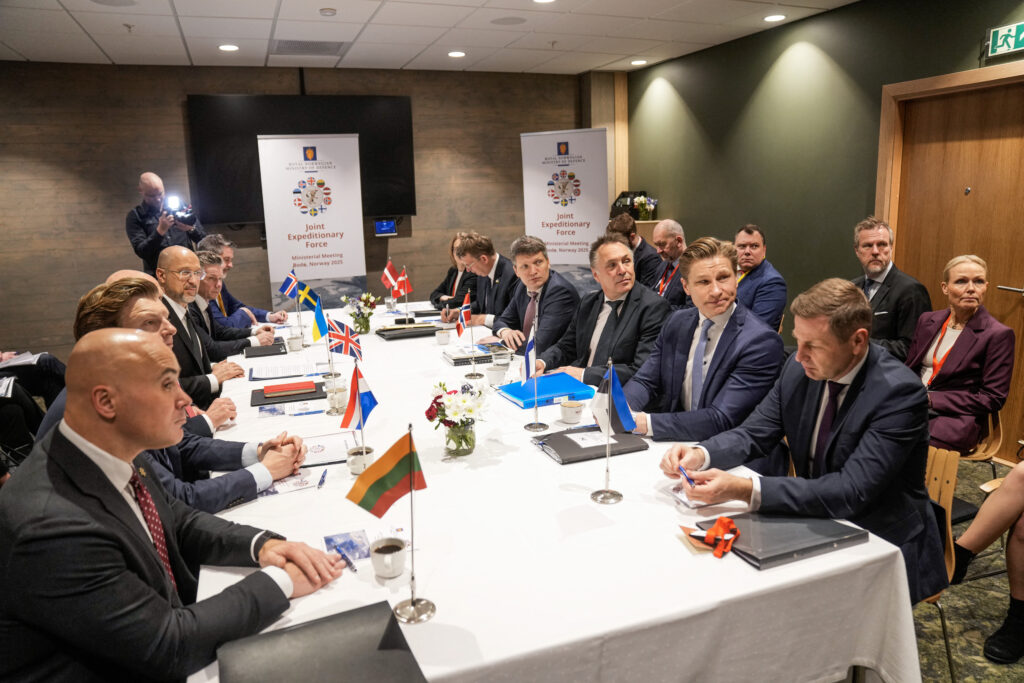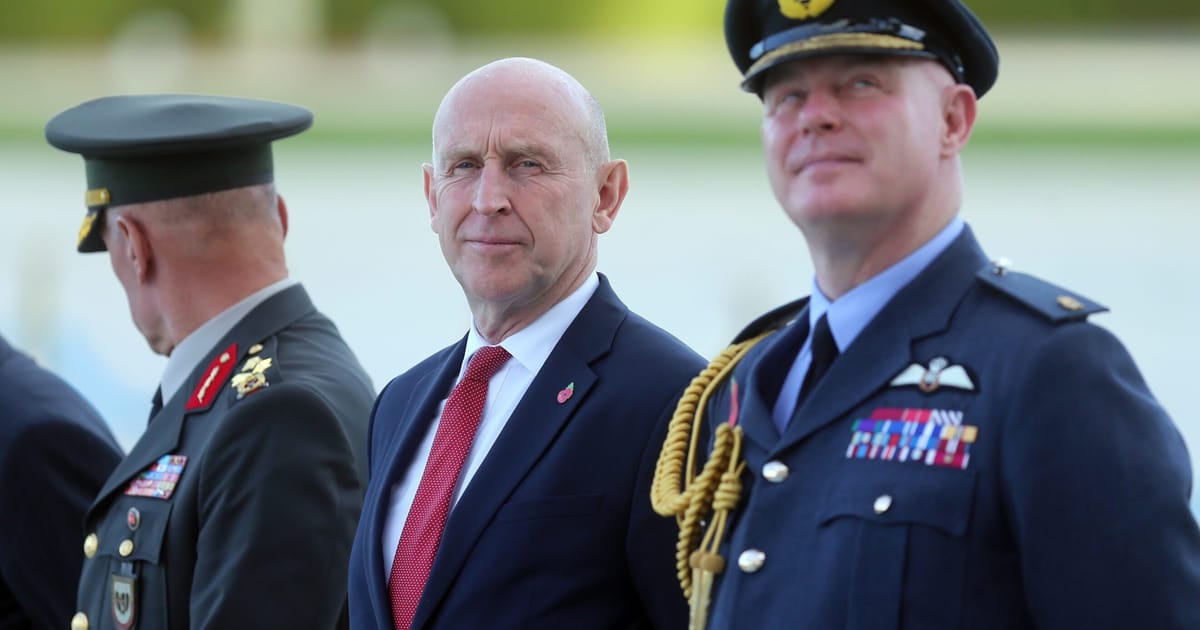British Defence Secretary John Healey, who took part in this week’s war-gaming exercise, spoke to POLITICO on the plane from Norway to France, where he held talks with the French defense minister.
“These are the countries where Russian aggression is their everyday experience. They live next door to the presence of the Russian military,” Healey said. “We’re the nations that can best assess the risks, best respond to the threats, and best get NATO connected to take this more seriously.”
Part of the idea behind JEF is that it can act swiftly while the NATO machine, which requires the agreement of 32 member states to act, takes much longer to whir into action.
 In the wake of Russia’s 2014 invasion of Crimea, Britain put itself forward to lead a group of like-minded European countries, founding the 10-nation Joint Expeditionary Force. | Fredrik Varfjell/AFP via Getty Images
In the wake of Russia’s 2014 invasion of Crimea, Britain put itself forward to lead a group of like-minded European countries, founding the 10-nation Joint Expeditionary Force. | Fredrik Varfjell/AFP via Getty Images
Northern allies also believe it is the right vehicle for adapting to rapidly developing weaponry and disruptive tactics which do not meet the threshold of traditional warfare, sometimes known as “gray zone” attacks.
Speaking from the cosy surrounds of the Wood Hotel, which sits on a winding road above Bodø, Maj. Gen. Gjert Lage Dyndal of the Norwegian army was philosophical about the danger to his country. Russian aggression in the Arctic is nothing new, he said, and has more to do with the long-running nuclear standoff between the U.S. and Russia than Norway itself.
Nonetheless, he acknowledged the importance of a coordinated response, particularly for dealing with hybrid warfare — “something that has been developing all over Europe over the last couple of years” — as he pointed to the 2022 sabotage of Nord Stream natural gas pipelines linking Russia and Germany, heightened drone activity and the disruption of shipping routes.
